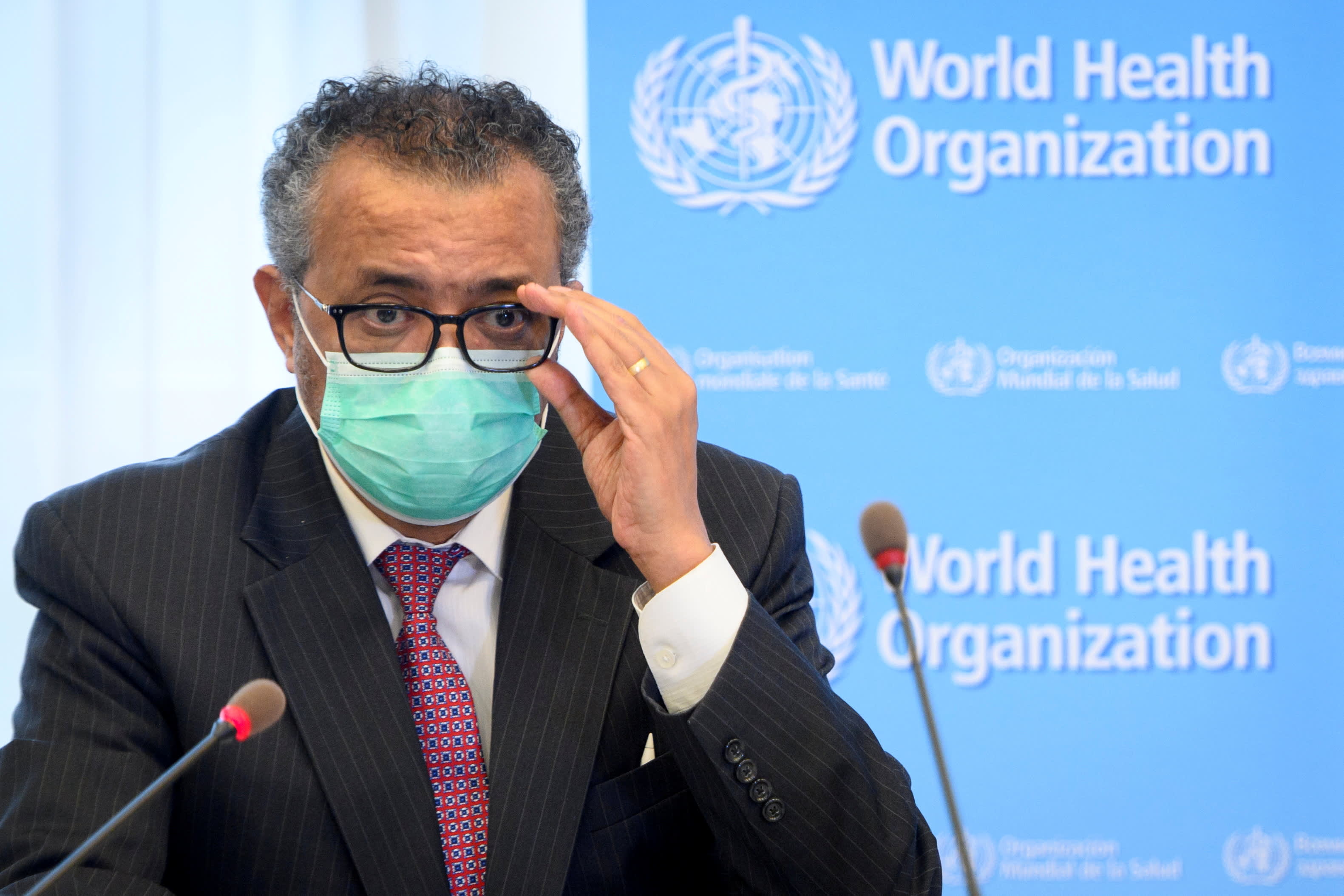
The Director-General of the World Health Organization (WHO), Tedros Adhanom Ghebreyesus, speaks during a bilateral meeting with the Swiss Minister of the Interior and Health, Alain Berset, on the sidelines of the opening of the 74th World Assembly of Health at WHO Headquarters in Geneva, Switzerland, on 24 May 2021.
Laurent Gillieron | Reuters
The World Health Organization is monitoring a new variant of coronavirus called “mu,” which the agency says has mutations that can elude immunity provided by a previous Covid-19 infection or vaccination.
Mu, also known to scientists as B.1.621, was added to the WHO list of “interest” variants on August 30, the international health organization reported in its epidemiological report. Covid weekly published Tuesday afternoon.
The variant contains genetic mutations that indicate natural immunity, current vaccines or monoclonal antibody treatments may not work as well as against the original ancestral virus, the WHO said. The mu strain needs further studies to confirm whether it will be more contagious, more lethal, or more resistant to current vaccines and treatments.
Mu “has a constellation of mutations that indicate possible immune escape properties,” the WHO wrote on Tuesday in its report.
“Preliminary data presented to the working group on the evolution of the virus show a reduction in the neutralizing capacity of convalescent and vaccine sera similar to that seen for the beta variant, but this needs to be confirmed by other studies. “, added.
The agency is monitoring four “worrying” variants, including the delta, which was first detected in India and is the most common variant currently circulating in the US; alpha, first detected in the UK; beta, first detected in South Africa, and gamma, first detected in Brazil. A variant of concern is generally defined as a mutated strain that is more contagious, more lethal, or more resistant to current vaccines and treatments.
It is also closely monitoring four other variants of interest, including lambda, first identified in Peru, which have caused outbreaks in several countries and have genetic changes that could make them more dangerous than other strains.
Delta was a variant of interest until the WHO reclassified it in early May after preliminary studies found that it could spread more easily than other versions of the virus. Since then, this variant has been blamed for several major outbreaks around the world, including the United States.
The new variant, mu, was first identified in Colombia, but has since been confirmed in at least 39 countries, according to the WHO. Although the overall prevalence of the variant between sequenced cases has decreased and is currently below 0.1%, its prevalence in Colombia and Ecuador has steadily increased, the agency warned.
The WHO said more studies are needed to understand the clinical features of the new variant.
“The epidemiology of the Mu variant in South America, particularly with the co-circulation of the Delta variant, will be monitored for changes,” the agency said.